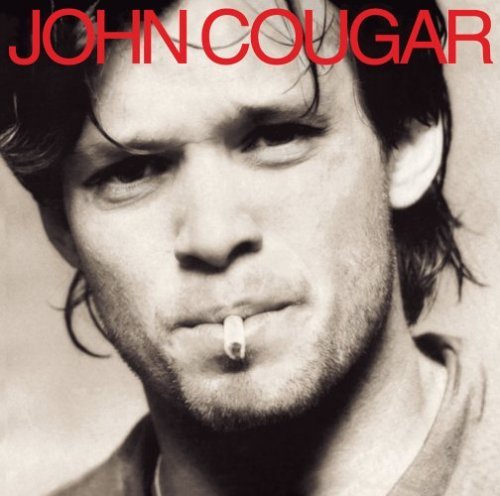
John Cougar (1979)

1. A Little Night Music
2. Small Paradise
3. Miami
4. The Great Mid-West
5. Do You Think That's Fair
6. I Need a Lover
7. Welcome to Chinatown
8. Sugar Marie
9. Pray For Me
10.Taxi Dancer
11.Take Home Pay
For many listeners, John Cougar, released in 1979, was their first introduction to John Mellencamp—even if they didn’t know his real name at the time. Although technically his fourth album, it was the first to receive a proper U.S. release, and thus it has often been mistaken as his debut. The three records that preceded it had come and gone with little fanfare, and in retrospect, that anonymity may have worked in his favor. By the time John Cougar appeared, the rough edges were still there, but so was a much better sense of direction.
While not a commercial breakthrough, the album represents a clear step forward. For the first time, Mellencamp sounds less like a product of label expectations and more like a young artist with a point of view. He hadn’t yet embraced the socially conscious themes that would define his later work—there are no grand pronouncements about the state of Middle America here. What we get instead is the voice of a restless, small-town kid with something to prove. That urgency works in the album’s favor.
Thematically, it’s all youthful bravado and low-level disillusionment. There’s an undercurrent of rebellion in both the lyrics and the presentation. Just look at the cover: cigarette dangling from mouth, vacant stare—it’s a carefully curated image, but one that suits the music inside. These are songs about teenage hangovers, late-night wanderings, and unremarkable heartbreaks, delivered with enough sincerity to rise above their clichés.
The album’s most notable contribution to Mellencamp’s catalog is I Need a Lover, which had already appeared on the earlier A Biography but gained traction here thanks to improved distribution and promotion. It became his first real hit, and while it’s a bit overlong and weighed down by late-’70s production tropes, the energy is unmistakable. Also pulled from A Biography is Taxi Dancer, a melancholic ballad that gets a glossier reworking here. It’s still affecting, but some of the raw charm of the original is lost in translation.
Elsewhere, the material is hit-or-miss, though never without interest. Tracks like Miami and A Little Night Dancin’flirt with the disco-tinged aesthetics of the era—understandable given the musical climate of 1979—but Mellencamp keeps one foot in heartland rock, even as the arrangements chase trendier sounds. That tension, oddly enough, gives the album a strange kind of charm.
What’s most striking in retrospect is how much potential is embedded in these songs. You can sense Mellencamp inching toward something bigger. The songwriting isn’t all the way there, but the attitude is, and the shift from imitation to authenticity is already underway.
His first three albums are easily skipped, but John Cougar is where things start to click. It’s a transitional work and an essential one. The blueprint for what would come next is here—imperfect, unpolished, but undeniably present.
Go back to the main page
Go To Next Review